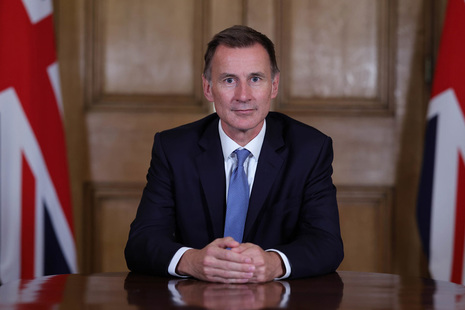Modernise casino rules before imposing extra costs, UK government warned

In an op-ed article for the Betting & Gaming Council (BGC), Rank Group’s David Williams said proposed changes that would benefit the sector must be introduced to ensure its survival.
Williams urges that these must come ahead of the lift in the national living wage and the expected impact of freezing casino duty bands. The latter will cost the sector £5m per year, according to the BGC.
Williams, Rank’s director of public affairs, said the industry can only survive these increased costs if policies outlined in the white paper are delivered first.
These include the change to gaming machine allocations and casinos being allowed to offer sports betting. Another key change, according to Williams, is the expansion of electronic payment methods.
Williams said the sector needs modernisation to drive revenue and help absorb costs. “That’s the only sequence of events that works,” he said.
Williams added: “These improvements cannot come a moment too soon and it is precisely why the industry is urging the government to keep its foot to the floor in delivering their response to the land-based consultation, laying the necessary statutory instruments and getting the legislation delivered in the first half of 2024. It all takes time and, while timing is everything, we are not blessed with time on our side.
“We are playing catch-up with casinos elsewhere in the world and much of the wider gambling ecosystem. Only when the legislation is delivered can we set about making our casinos more modern and appealing.”
BGC accuses UK government of £5m casino stealth tax raid
In November 2023 the BGC accused the UK government of a stealth tax raid on casinos. It estimates that it could cost the industry £5m per year.
The claim relates to the freezing of gaming duty bands outlined in Chancellor of the Exchequer Jeremy Hunt’s autumn statement. In a statement, the BGC said that those within the land-based casino sector had hoped the bands would rise with inflation.
The BGC said the freeze in gaming duty bands effectively creates a £25m tax increase for casinos over the next five years.
Michael Dugher, chief executive of the BGC, has previously posited that the “stealth tax” has the potential to slow recovery and weaken future growth.
“Removing it would have provided a welcome boost for the land-based casino sector at a crucial time,” he said. “Instead, the decision to maintain the status quo represents a missed opportunity for companies ready and able to generate jobs and investment across the country.”
The BGC noted that casinos contribute £300m annually in taxes. Across the entire economy, the sector provides an estimated £800m a year in gross value.
However, casinos have been hit hard by challenges such as the cost-of-living crisis. The BGC noted that four casinos have closed in recent months, while the sector employs 25% fewer workers than just four years ago. One in four casinos have closed since 2005, with just 117 remaining across the country.
UK white paper consultations
Published in April, the Gambling Act review white paper outlines how gambling will be regulated in the UK. Several proposals set out in the white paper are currently being considered by the Gambling Commission. The first consultation was launched in July.
The BGC has broadly backed the government’s gambling white paper, notably in relation to casino reform. The white paper includes proposals on affordability checks, sports betting and machine numbers.
Round one, which closed in October, looked at financial risk and vulnerability and improving age verification at land-based venues. More than 3,000 submissions were made in total.
The next round of consultations considers seven topics including opting in for online bonuses. It is set to close in February or March, according to Tim Miller, executive director of policy at the Commission.


